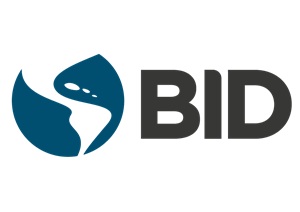 AcademiaBID | Cursos online | Amplía tus habilidades y conocimiento con todos nuestros recursos de aprendizaje
AcademiaBID | Cursos online | Amplía tus habilidades y conocimiento con todos nuestros recursos de aprendizaje
Natacion
High Throughput Screening (HTS) services have transformed the landscape of drug discovery, enabling researchers to efficiently identify potential drug candidates from vast libraries of compounds. HTS is a method used to conduct hundreds to thousands of experiments in parallel, significantly accelerating the process of finding and optimizing new therapeutics.
Understanding High Throughput Screening
At its core, HTS involves automating the process of testing and analyzing biological activity in large numbers of samples. This could be in the form of small molecules, peptides, or even biologics. By utilizing sophisticated robotics, miniaturized assays, and advanced data analysis tools, researchers can screen vast compound libraries quickly and with high precision.
Detection technologies play a crucial role in HTS. Common methods include fluorescence, luminescence, and absorbance assays, each allowing scientists to monitor biological interactions and responses effectively. The choice of detection method largely depends on the specific application and the nature of the target being studied.
The Role of HTS in Drug Development
The pharmaceutical industry has embraced HTS due to its ability to save time and resources in drug development. Traditional methods of identifying drug candidates are often labor-intensive and time-consuming, requiring extensive manual work and long timelines. In contrast, HTS facilitates the rapid evaluation of compound libraries against biological targets, narrowing down potential hits for further investigation.
Moreover, HTS is invaluable in lead optimization, where initial hits are refined to enhance their efficacy and reduce side effects. This iterative process can include modifications to the chemical structure of the compounds, followed by re-screening using HTS to evaluate the impact of these modifications.
Advantages of Utilizing HTS Services
Outsourcing HTS services to specialized laboratories offers numerous benefits. These facilities are equipped with cutting-edge technology and expertise, allowing researchers to leverage advanced screening methodologies without incurring the costs of developing in-house capabilities.
Access to a wide range of compound libraries is another advantage of using HTS services. Many organizations have established libraries that include diverse chemical entities, increasing the chances of identifying novel drug candidates. Furthermore, these services often provide comprehensive data analysis, equipping researchers with insights that facilitate informed decision-making in subsequent stages of drug development.
Challenges and Considerations
Despite its advantages, HTS is not without challenges. The sheer volume of data generated during screening can be overwhelming, necessitating robust data management and analytical capabilities to extract meaningful insights. Researchers must also be aware of potential pitfalls, such as false positives and negatives, which can arise from assay variations or biological complexities.
Additionally, while HTS can rapidly identify promising candidates, the transition from hits to viable drug candidates can still be fraught with difficulties. Factors such as drug metabolism, toxicity, and pharmacokinetics must be thoroughly evaluated, underscoring the need for a well-rounded approach that integrates HTS with traditional drug development methodologies.
Conclusion
High Throughput Screening services have become an indispensable tool in the quest for new therapeutics. By facilitating the rapid screening of vast compound libraries, HTS significantly accelerates the drug discovery process, driving innovation in the pharmaceutical industry. As technology continues to advance, HTS will likely evolve further, offering even more sophisticated methods for researchers to discover and optimize new drugs, ultimately contributing to the development of effective treatments for various diseases.

